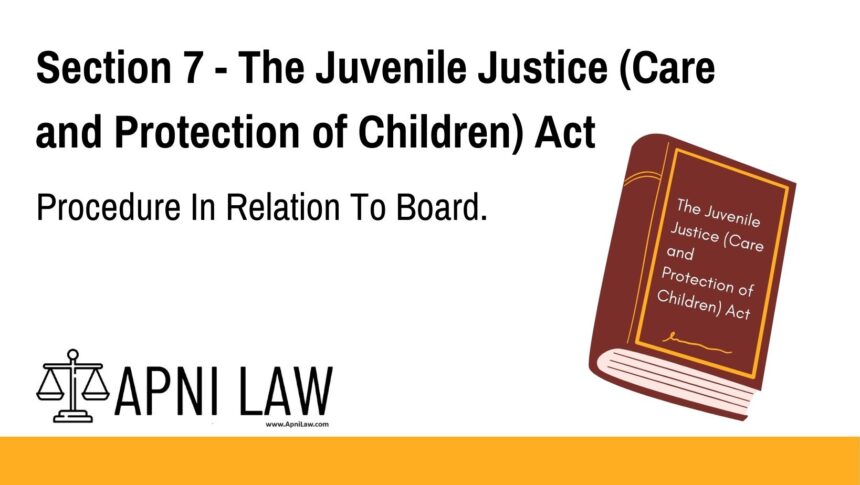Code
(1) The Board shall meet at such times and shall observe such rules in regard to the transaction of business at its meetings, as may be prescribed and shall ensure that all procedures are child-friendly and that the venue is not intimidating to the child and does not resemble regular courts.
(2) A child in conflict with law may be produced before an individual member of the Board, when the Board is not in sitting.
(3) A Board may act notwithstanding the absence of any member of the Board, and no order passed by the Board shall be invalid by the reason only of the absence of any member during any stage of proceedings:
Provided that there shall be at least two members including the Principal Magistrate present at the time of final disposal of the case or in making an order under sub-section (3) of section 18.
(4) In the event of any difference of opinion among the members of the Board in the interim or final disposal, the opinion of the majority shall prevail, but where there is no such majority, the opinion of the Principal Magistrate shall prevail.
Explanation
Section 7 deals with the operational aspects of the Juvenile Justice Board (JJB). This section emphasizes flexibility, child-sensitive procedures, and ensuring that the Board operates in a manner that reflects the best interests of children in conflict with the law.
The key elements of this section include:
-
Child-friendly procedures: The Board is required to ensure that its proceedings do not intimidate the child and that the venue is not like a regular courtroom.
-
Board meetings: The Board meets at prescribed times, but in certain cases, a child can be presented before an individual member outside regular sittings.
-
Absence of members: The Board may proceed even if some members are absent, provided there are at least two members present during the final disposal of the case.
-
Decision-making: In case of disagreements, the majority opinion prevails, and in the absence of a majority, the Principal Magistrate’s opinion prevails.
Illustration
Example:
Imagine a case where a child in conflict with the law is brought before the Juvenile Justice Board for a hearing.
-
Child-friendly environment: The Board will ensure the venue is non-intimidating, not resembling a regular court, to make the child feel more comfortable.
-
Presence of members: If a Board member is absent, the case can still proceed with at least two members, including the Principal Magistrate, ensuring continuity of the process.
-
Decision-making: If the members disagree, the majority opinion will guide the decision. If there’s no majority, the Principal Magistrate will have the final say.
Common Questions and Answers
1. Can the Juvenile Justice Board function if a member is absent?
-
Answer: Yes, the Board can proceed with the proceedings if a member is absent, as long as there are at least two members, including the Principal Magistrate, present during the final disposal of the case.
2. How is a child-friendly environment ensured in the Board’s proceedings?
-
Answer: The Board ensures that the proceedings are not intimidating and that the venue does not resemble a regular court. This includes avoiding adversarial language and using simple, understandable procedures for the child.
3. What happens if there’s a difference of opinion among the Board members?
-
Answer: If there is a difference of opinion, the majority opinion will prevail. If there is no majority, the Principal Magistrate’s opinion will be final.
Conclusion
Section 7 of the Juvenile Justice Act ensures that the Juvenile Justice Board operates in a child-centric manner, prioritizing flexibility and sensitivity to the needs of children. By establishing procedures that create a safe and non-intimidating environment, this section promotes the best interests of the child and guarantees fairness, even in the absence of Board members or disagreements among them. Ultimately, this approach fosters a rehabilitative system for children in conflict with the law, focusing on their reintegration and growth rather than punishment.








